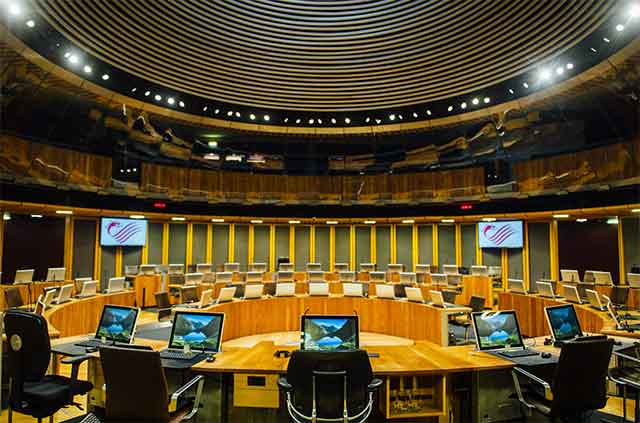The counsel general outlined plans to declutter and simplify Welsh law, with the aim of making legislation accessible at the touch of a button.\
Julie James, the Welsh Government’s chief legal adviser, gave a statement to the Senedd on October 22 following the introduction of the legislation bill.
Ms James, who was appointed in September, said the technical bill will form an important part of the infrastructure that underpins Welsh law.
The former solicitor said the first part of the bill would simplify “overly complex” procedures on subordinate legislation, law created by ministers under powers conferred by an Act.
She told the Senedd the second part would modernise the rules on publication of Welsh law which is “fragmented and outdated”, with “gaps in public access and transparency”.
‘Obsolete’
She said the bill would lead to a more coherent, bespoke system – with a duty imposed on a newly established King’s Printer for Wales, which would oversee publication of legislation.
Ms James explained the bill would formally establish a class of legislation known as a ‘Welsh statutory instrument’ for the first time, making legislation.gov.uk easier to navigate.
The counsel general added that the third part repeals redundant provisions, saying: “When people want to see and read the law, it needs to be available to them at the click of a button.
“They need to have confidence they are reading the correct version … and not have to worry whether provisions have been amended and updated or … have become spent or obsolete.”
Ms James said she will introduce a separate bill to consolidate planning law, suggesting it will be this Senedd term “as long as we can get our legislative timetables sorted out”.
‘Very keen’
Mark Isherwood, the Conservatives’ shadow counsel general, raised the Law Society’s calls for support for the legal sector and a public awareness campaign centred on Welsh law.
He also suggested processes could be improved around “negative procedure” legislation which Senedd members are deemed to consent to but may not be aware of.
Adam Price said the Law Wales website is more accessible than legislation.gov.uk but many of the pages have not been updated in four years while others are blank.
Plaid Cymru’s shadow justice minister called for the Senedd to be able to pass amendments to subordinate legislation to improve democratic accountability.
He raised concerns about statutory instruments (SIs) only being published in English.
‘Caught out’
Ms James, a member of the new ‘future Senedd’ committee, said she was “very keen” to look at amendable SIs and referring secondary legislation to policy committees.
Rhys ab Owen, an independent, welcomed the bill as an important step forward to give parity to Welsh law and make it more accessible.
The former barrister recalled basing an argument in court on revoked legislation, drawing the ire of a “very annoyed” judge at Swansea Civil Justice Centre.
Ms James replied: “I too have been caught out exactly like that when I was still practising….
“I also very much remember the butterflies in your tummy as you put forward a novel proposition and aren’t absolutely certain it’s the most up-to-date piece of law.”
‘Weakness’
Labour’s Alun Davies called for a richer role for the Senedd in scrutiny amid a growing number of “framework” bills pursued by the Welsh Government.
Ms James agreed about the need to review processes, pointing to the example of the 2024 Infrastructure Act that will be “brought to life” via secondary legislation.
She said she could only once remember a motion to annul secondary legislation being brought forward in her 13 years in the Senedd.
On Monday, former first minister Mark Drakeford told the justice committee the Senedd already has significant oversight of subordinate legislation.
But he said: “If I was to identify a weakness in the system, it would be less in the way in which legislation creates subordinate ways of doing things than that the Senedd itself doesn’t always make full use of the powers of scrutiny it has.”

